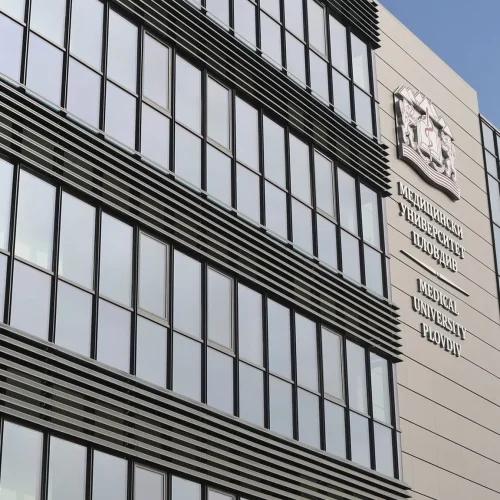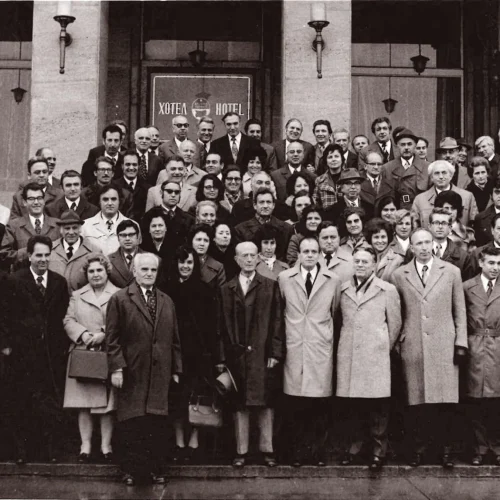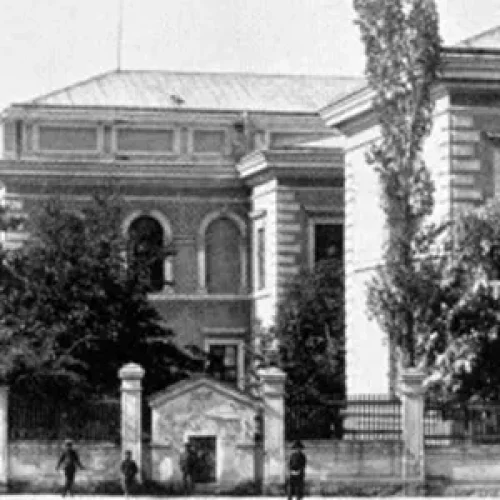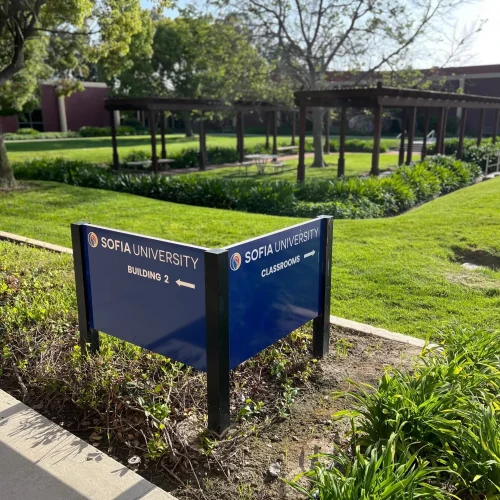



Pursuing an MBBS in Bulgaria is a top choice for many medical students, thanks to its affordable tuition fees, high-quality education, and skilled faculty. With an impressive literacy rate of 98.4%, Bulgaria offers excellent medical programs that appeal to aspiring doctors, especially from India. The country is home to some of the finest medical universities in the world, known for their strong academic infrastructure. The annual tuition fee for MBBS in Bulgaria typically ranges between 6,000 to 8,000 Euros, and the course duration is six years. One of the standout features of studying in Bulgaria is the favourable teacher-student ratio of 1:18, ensuring personalized attention and support. Among the 30 top medical universities in Europe, Bulgaria hosts two prestigious institutions that are globally recognized by organizations like the NMC (National Medical Commission) and WHO (World Health Organization). To gain admission, students are required to clear either the TOEFL or IELTS language proficiency exams. Importantly, applicants can enrol in Bulgarian medical universities without having to pay any donation fees.
Admission Intake: September
Academic Requirement: Minimum of 50% marks in Physics, Chemistry, and Biology
NEET Requirement: Mandatory with qualifying scores
Language Proficiency Tests (IELTS/TOEFL): Not required
Application Processing Time: Approximately 90 days
Annual Tuition Fee: Around 7,500 Euros
Monthly Living Expenses: Estimated at 250 Euros
Program Duration: 6 years
Language of Instruction: English
Leading Medical Institutions: All government universities
Global Recognition: Approved by both the NMC (National Medical Commission) and WHO (World Health Organization)
Here are some key reasons why students opt to pursue their MBBS in Bulgaria:
If you’re considering pursuing an MBBS in Bulgaria, keep the following points in mind:
To be eligible for MBBS admission in Bulgaria, students must meet the following requirements:
| University Name | Location |
| Medical University of Plovd iv | Plovdiv, Bulgaria |
| Medical University of Sofia | Sofia, Bulgaria |
| Sofia University | Sofia, Bulgaria |
Top Medical Universities in Bulgaria
Bulgaria is known for its prestigious medical universities, making it one of the leading destinations for medical education in Europe. With excellent healthcare facilities, this Schengen country draws thousands of aspiring medical students from all around the world. Below are some of the top medical universities in Bulgaria:
Established in 1917, the Medical University of Sofia is the oldest medical school in Bulgaria and ranks among the top medical institutes in Europe. It offers medical courses in English at a highly affordable tuition rate.
Year Founded: 1917
Accreditation: NMC, WHO
Course Duration: 5+1 years
Eligibility: 10+2 with 62% marks, NEET
Language of Instruction: English
Application Deadline: November 1, 2025
Founded in 1945, the Medical University of Plovdiv is equipped with modern facilities, including a large hospital with 2,000 beds, diagnostic units, laboratories, and research centers. Nearly 4,000 students are trained annually at this renowned university.
Year Founded: 1945
Accreditation: NMC, WHO
Course Duration: 5+1 years
Eligibility: 10+2 with 62% marks, NEET
Language of Instruction: English
Application Deadline: November 1, 2025
Some of the essential d ocuments which are required at the time of MBBS in Bulgaria are:
| University Name | Tuition Fee Per Year | Hostel Fee Per Year |
|
|
8,500 EUR |
5,000 EUR |
|
|
9,000 EUR |
5,000 EUR |
| Medical University of Sofia | 9,000 EUR | 5,000 EUR |
|
|
9,000 EUR |
5,000 EUR |
Note: The tuition fees listed in the table are subject to change, and the university reserves the right to modify the fees at any time without prior notice to students. For the exact fee amount in INR, feel free to contact us.
| Year | Semesters | Subjects Covered |
| 1st | 1st – 2nd Sem. | Medical Ethics, Human Biology, Physics, Cytology and Embryology, Chemistry, Latin Language, Anatomy and Histology, Sport, Summer Practice, Bulgarian Language, and Electives |
| 2nd | 3rd -4th Sem. |
Anatomy and Histology, Physiology, Biophysics, Medical Informatics, Sports, Biochemistry, Bulgarian Language, General Medicine, Social Medicine, Microbiology, Summer Practice, Electives, and Participation in Research Projects |
| 3rd | 5th – 6th Sem. | Medical Genetics, Social Medicine, Microbiology, Medicine of Disasters, Pathophysiology, Pharmacology, General Pathology, Propaedeutics of Internal Diseases, General and Operative Surgery, Summer Practice, Electives, and Participation in Research Projects |
| 4th | 7th -8th Sem. | Otorhinolaryngology, Ophthalmology, Image Diagnostics, Nuclear Medicine and Radiotherapy, Neurology, Clinical Pathology, Hygiene, Ecology and Occupational diseases, Internal Diseases, Participation in Scientific Research Projects, Participation in Bulgarian Scientific Journals, Participation in International Scientific Journals, Surgery, and Electives |
| 5th | 9th – 10th Sem. | Surgery, Obstetrics and Gynecology, Pediatrics, Internal Diseases, Orthopedics and Traumatology, Clinical Immunology, Clinical Pharmacology, Dermatology and Venerology, Clinical Laboratory, Electives, Participation in International Scientific Journals, Participation in Scientific Research Projects, and Participation in Bulgarian Scientific Journals |
| 6th | 11th – 12th Sem. | Psychiatry, Physiotherapy, Urology, Forensic Medicine and Deontology, Epidemiology, Parasitology, Tropical Diseases, Infectious Diseases, Anesthesiology and Reanimation, Electives, Participation in Scientific Research Projects, Participation in Bulgarian Scientific Journals, and Participation in International Scientific Journals |
Do’s and Don’ts for Medical Universities in Bulgaria
Bulgaria is a beautiful country located in Southeast Europe, known for its rich history, diverse culture, and scenic landscapes. It is a member of the European Union and is part of the Schengen Area, making it an attractive destination for international students and travelers alike.
Key Facts About Bulgaria:
Capital and Major Cities: The capital of Bulgaria is Sofia, which is the largest city and a cultural, historical, and economic hub. Other major cities include Plovdiv, Varna, and Burgas.
Language: The official language is Bulgarian, but English is widely spoken in larger cities and among younger generations, especially in academic and professional settings. Less than 20% of the local population inBulgaria speaks English.
Currency: The currency used in Bulgaria is the Bulgarian Lev (BGN). It is an affordable destination for students compared to many Western European countries. 1 Indian Rupee is equivalent to approximately 0.025 Bulgarian Lev.
Climate: Bulgaria experiences a temperate-continental climate, with hot summers and cold winters. The country’s varied terrain, from mountains to beaches, offers different seasonal experiences.
Education: Bulgaria is home to several top-ranking universities, particularly in fields like medicine, engineering, and technology. Bulgarian universities are known for their high academic standards, with many offering programs in English to attract international students.
Safety: Bulgaria is generally considered a safe country for international students, with a relatively low crime rate.
Cuisine: Bulgarian food is hearty and flavorful, with a blend of Mediterranean and Eastern European influences. Popular dishes include banitsa (pastry), shopska salad, and hearty stews.
Transportation: The flight duration from India to Bulgaria is between 10 to 11 hours. Bulgaria has an efficient transportation system, including buses, trains, and flights connecting major cities. Sofia also has a metro system for easy access around the capital.